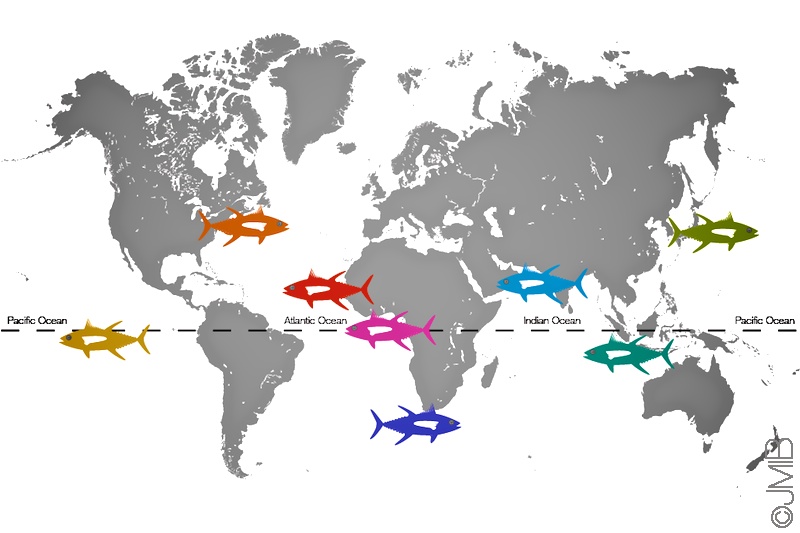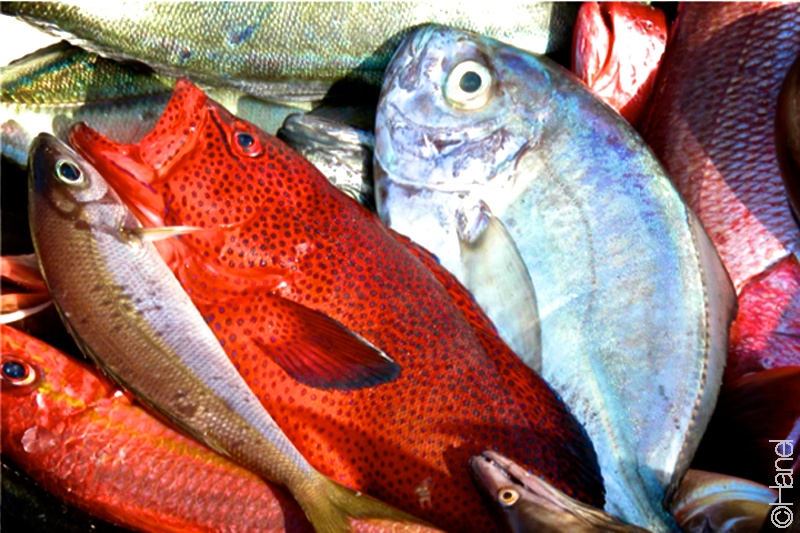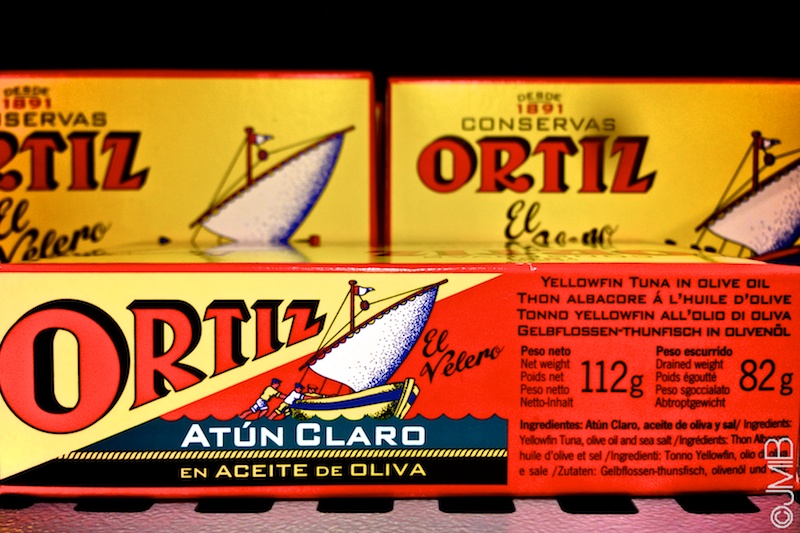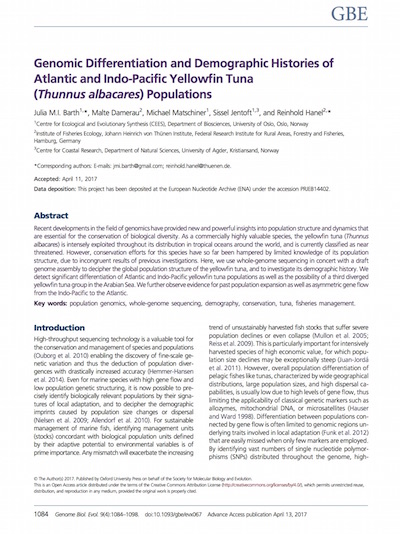Yellowfin tuna (Thunnus albacares)
Collaborative project with the Thünen-Institut, Hamburg, Germnany.
Caused by the increased international trade of marine fish, markets are often supplied with species that are poorly known in terms of biology and distribution,
or which are even declared as endangered. To prevent that illegally caught fish enter the markets, genetic and genomic methods are used to develop tools for improved tracability of
fish products.
Within this project, we aim at the generation of a marker set suitable to trace the origin of products of the near threatened Yellowfin tuna (Thunnus albacares).
In our first study, we used a global sampling scheme and whole-genome sequencing to decipher the hitherto controversial population structure and the demographic history
of the yellowfin tuna, and find significant differentiation of Atlantic and Indo-Pacific populations with directional gene flow between these oceans. These novel findings
will be highly beneficial for further genomic research and enable the compilation of diagnostic marker panel for effective genotyping.



